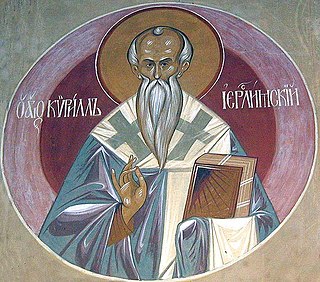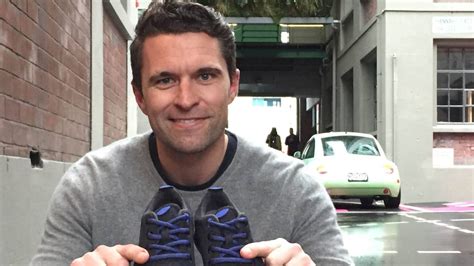A Quote by Cyril of Jerusalem
The wider our contemplation of creation, the grander is our conception of God.
Quote Topics
Related Quotes
There is nothing small about our God, and when we understand God we will find out that there ought not to be anything small about us. We must have an enlargement of our conception of God, then we will know that we have come to a place where all things are possible, for our God is an omnipotent God for impossible positions.
To use books rightly, is to go to them for help; to appeal to them when our own knowledge and power fail; to be led by them into wider sight and purer conception than our own, and to receive from them the united sentence of the judges and councils of all time, against our solitary and unstable opinions.
More than anything else, kindness is a way of life. It is a way of living and walking through life. It is a way of dealing with all that is-our selves, our bodies, our dreams and goals, our neighbors, our competitors, our enemies, our air, our earth, our animals, our space, our time, and our very consciousness. Do we treat all creation with kindness? Isn't all creation holy and divine?
My dear friends, God’s creation is one and it is good. The concerns for nonviolence, sustainable development, justice and peace, and care for our environment are of vital importance for humanity. They cannot, however, be understood apart from a profound reflection on the innate dignity of every human life from conception to natural death: a dignity conferred by God himself and thus inviolable.
Salvation is not some felicitous state to which we can lift ourselves by our own bootstraps after the contemplation of sufficiently good examples. It is an utterly new creation into which we are brought by our death in Jesus' death and our resurrection in his. It comes not out of our own best efforts, however well-inspired or successfully pursued, but out of the shipwreck of all human efforts whatsoever.
The prevailing idea seems to be, that I come to God and ask Him for something that I want, and that I expect Him to give me that which I have asked. But this is a most dishonouring and degrading conception. The popular belief reduces God to a servant, our servant: doing our bidding, performing our pleasure, granting our desires. No, prayer is a coming to God, telling Him my need, committing my way unto the Lord, and leaving Him to deal with it as seemeth Him best.
The disciplines of prayer, silence, and contemplation as practiced by the monastics and mystics are precisely that - stopping the noise, slowing down, and becoming still so that God can break through all our activity and noise to speak to us. Prayer serves to put all parts of our lives in God's presence, reminding us how holy our humanity really is.
We must, with God's help, eradicate the deadly poison of the demon of anger from the depths of our souls. So long as he dwells in our hearts and blinds the eyes of the heart with his somber disorders, we can neither discriminate what is for our good, nor achieve spiritual knowledge, nor fulfill our good intentions, nor participate in true life; and our intellect will remain impervious to the contemplation of the true, divine light; for it is written, 'Man's anger does not bring about the righteousness of God' (Jms. 1:20).










































